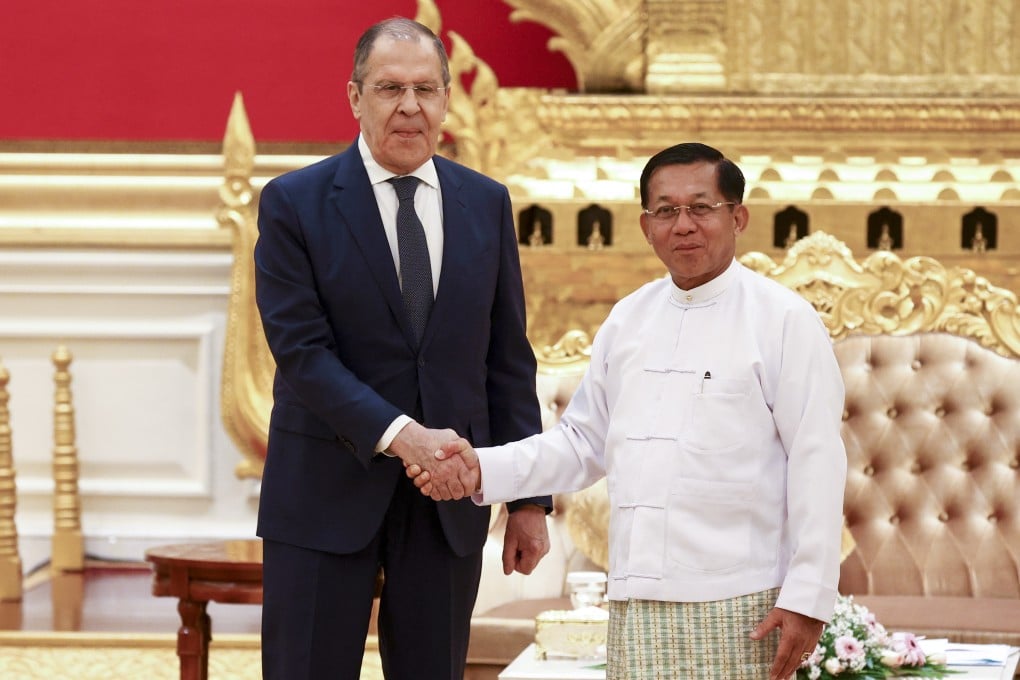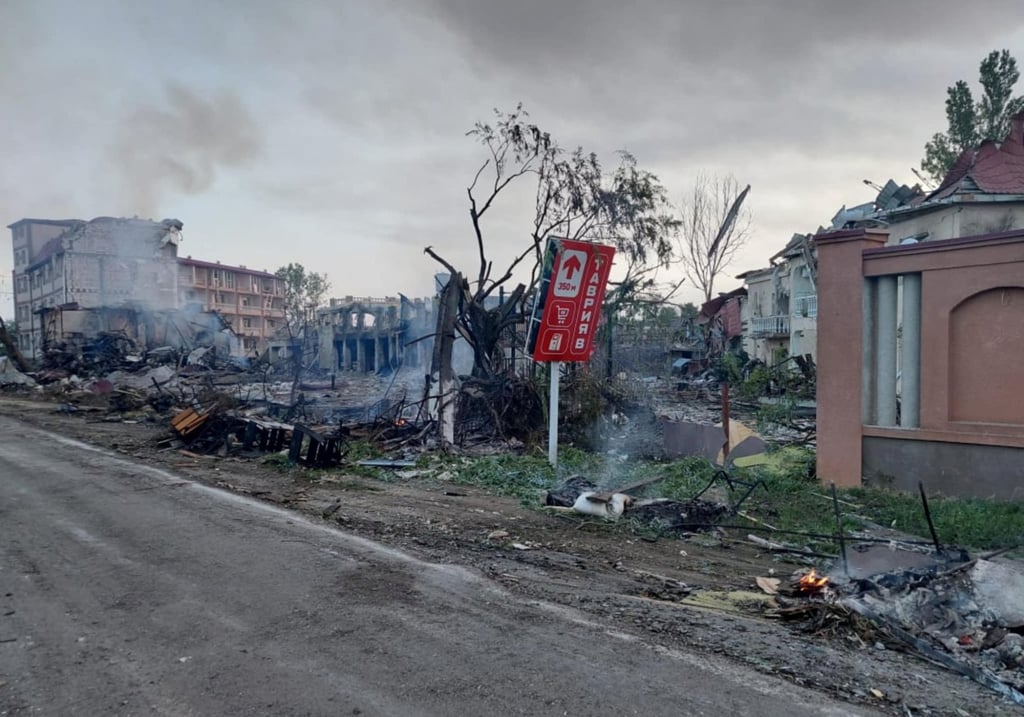Partners in isolation: Russia-Myanmar ties deepen amid Western sanctions
- Moscow has become ‘even more accommodating’ towards Myanmar’s junta, as both seek closer economic and military ties, analysts note
- Russia could also gain Indo-Pacific foothold through Myanmar, which has become its ‘most uncritical post-invasion partner in Asia’

Earlier this month, Russian Foreign Minister Sergey Lavrov visited Myanmar and met military leaders to discuss security and economic issues, according to Russian news agency Tass. Describing Myanmar as a “friendly and long-standing partner”, Lavrov said the two nations had cooperated in a wide range of areas on the basis of a partnership which was “not affected by any opportunistic processes”.
Last month, Myanmar leader Min Aung Hlaing visited Russia and met senior defence officials, with both sides pledging deeper military ties and cooperation on nuclear energy.

Russia is a key supporter and arms supplier to Myanmar’s military, which seized power in February last year from the elected government of Aung San Suu Kyi. Some of the weapons are said to have been used to fight against insurgents and rebels that oppose its rule.
Since the coup, rounds of sanctions have been imposed on Myanmar’s top generals, arms brokers and several state-owned companies linked to the military.
Russia has also faced sanctions ranging from the removal of its banks from the international financial messaging system Swift to import and export restrictions.